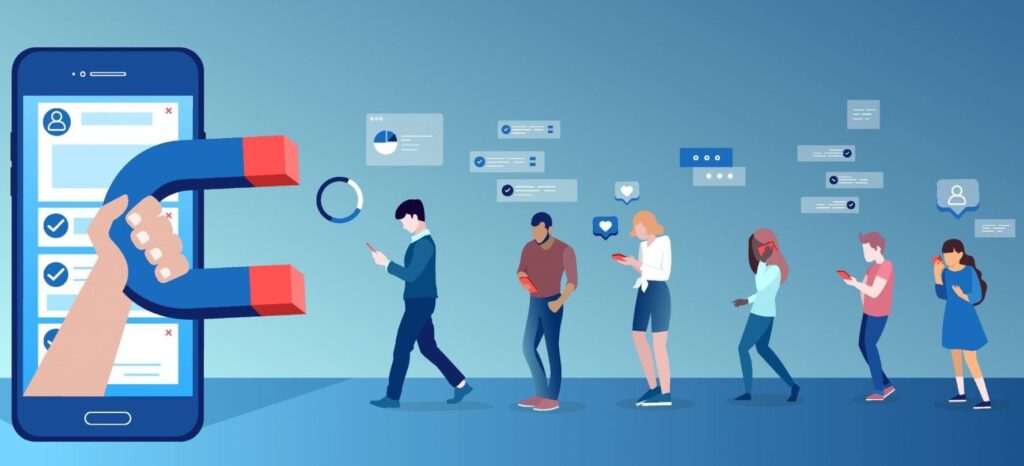Introduction
World has experienced rampant technological revolution, contributing to changes in how businesses, government, labor market, and various industries operate. Advancements have influenced people to utilize social media frequently, impacting modern society. In particular, social media’s influences on contemporary society include enhanced visibility of social issues, improved diversity, and change in how people conduct business.
Visibility of Societal Issues
Social media has enhanced the visibility of societal issues, contributing to the balance of power and equality in modern society, as evidenced in the fight for civil rights. For example, youths of color garnered support for Black Lives Matter on Twitter due to tragic cases of police murder and brutality (Miller et al. 2021, p. 3). People of color have acquired support across the globe, influencing relevant authorities to take action against persons who mistreat Blacks. Social media also creates a platform for people to share and create content. The high number of people utilizing social media has influenced individuals to use platforms to speak out about societal issues. For instance, the use of Twitter to air out police brutality influenced civil organizations to intercede (Miller et al. 2021, p. 3). In this context, sharing information on social platforms ensures that people across the globe recognize communal concerns. Therefore, social media has influenced modern society to utilize platforms to amplify the prominence of societal issues.

Improved Diversity
Social media has impacted modern society by influencing people to embrace diversity. For example, YouTube, Twitter, and Facebook social networks are considered vital for human relations due to the delivery of text messages, fast news, and information of interest (Radwan 2022, p. 2). Sharing what goes on during people’s daily lives ensures that the public recognizes other communities’ cultures. For instance, about 48 % of the global population are Internet users today (Radwan 2022, p. 2). Social media has created a virtual world where many users feel comfortable interacting with others. It has ensured that individuals from contradicting ethnic backgrounds share their beliefs and values, promoting diversity and inclusion. Hence, social media has influenced people to view modern society beyond traditions and customs.
Change in Conduct of Business
Besides, social media has influenced how people conduct business in modern society by increasing online purchases. For example, online purchases had reached approximately 20% by 2018, and retailers continuously look for innovative approaches for communicating with potential customers through social media (Dolega, Rowe & Branagan 2021, p. 1). This data on online sales justifies that social media has played a massive role in changing how people purchase in modern society. In this respect, social media has contributed to many developments in online shopping. For instance, about 79% of companies are on social media, with firms spending approximately 20% of advertising budget marketing via the Internet (Dolega, Rowe & Branagan 2021, p. 1). Individuals can identify and make orders for their commodities through social media platforms. Hence, people in modern society prefer online shopping due to social media.
Conclusion
Social media has impacted how people make purchases and contributed to societal issues’ diversity and visibility. Many individuals in contemporary society utilize social media platforms to speak out about their encounters. The high number of people using social media makes it easy for them to recognize issues prevalent in the community. Moreover, individuals share images and tapes of their daily happenings, influencing others to understand other cultures’ customs and promoting diversity. In turn, social media has influenced people to adopt online shopping in modern society.
Reference List
Dolega, L, Rowe, F & Branagan, E 2021, ‘Going digital? The impact of social media marketing on retail website traffic, orders and sales’, Journal of Retailing and Consumer Services, vol. 60, pp. 1-11, viewed 30 June 2023, DOI: 10.1016/j.jretconser.2021.102501.
Miller, GH, Marquez-Velarde, G, Williams, AA & Keith, VM 2021, ‘Discrimination and Black social media use: Sites of oppression and expression’, Sociology of Race and Ethnicity, vol. 7, no. 2, pp. 1-17, viewed 30 June 2023, DOI: 10.1177/2332649220948179.
Radwan, M 2022, ‘Effect of social media usage on the cultural identity of rural people: A case study of Bamha village, Egypt’, Humanities and Social Sciences Communications, vol. 9, no. 1, pp. 1-14, viewed 30 June 2023, DOI: 10.1057/s41599-022-01268-4.


